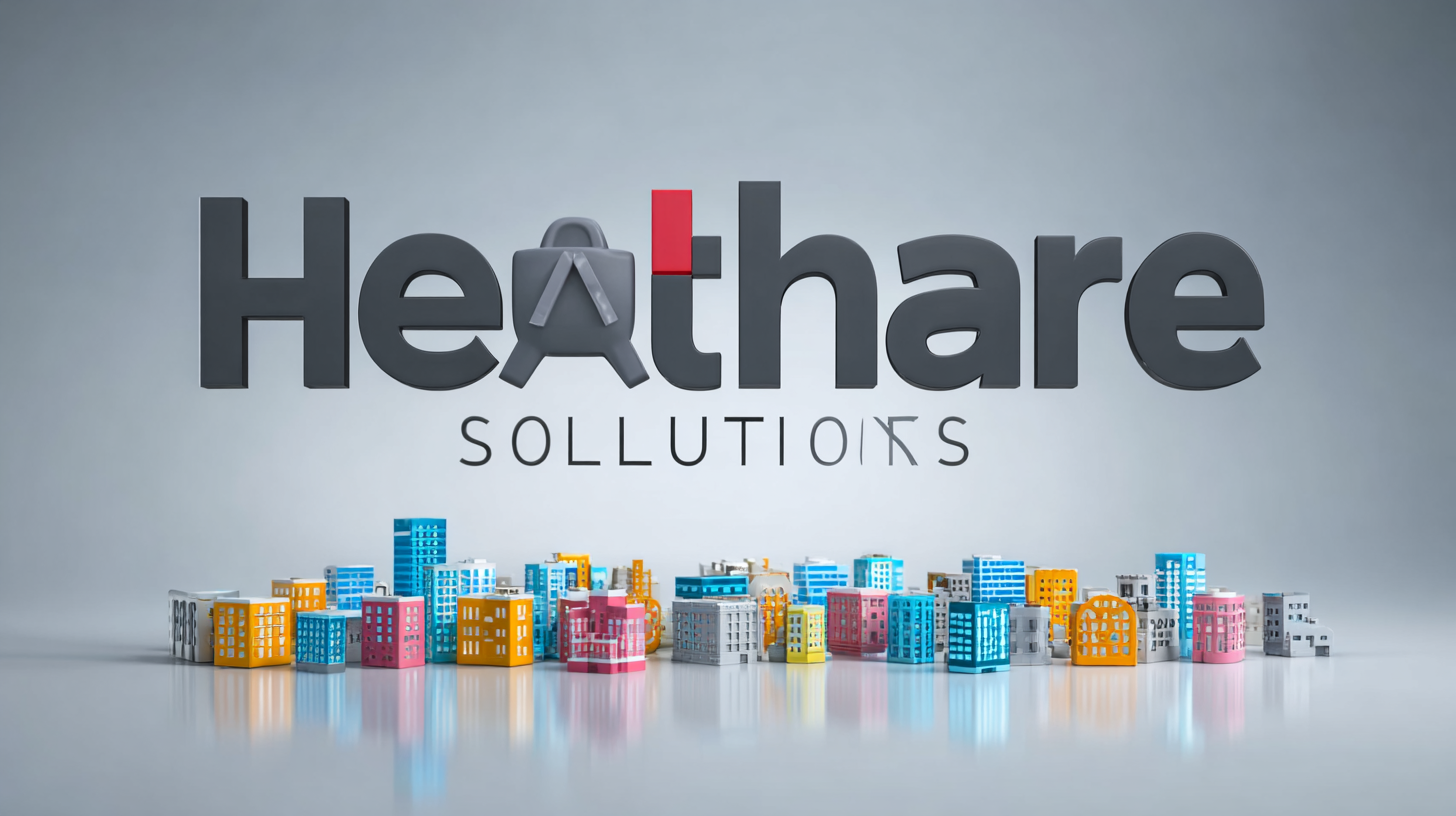Blog
How to Choose the Best Healthcare Solutions for Your Business Needs
In today's rapidly evolving healthcare landscape, choosing the best healthcare solutions for your business is more crucial than ever. According to a report by McKinsey & Company, the digital health market is projected to reach $500 billion by 2025, signifying a massive shift towards technology-driven healthcare services. Businesses face increasing pressure to adapt to these changes, making informed decisions about healthcare solutions critical to sustainability and growth. With options ranging from telemedicine platforms to integrated health management systems, organizations must evaluate their specific needs and align their choices with reliable data analytics and patient outcomes. As healthcare becomes more personalized and data-centric, understanding the nuances of various healthcare solutions will be essential for achieving efficient and effective patient care while also enhancing operational efficiency within the business infrastructure.

Identifying Your Business-Specific Healthcare Requirements
When selecting the best healthcare solutions for your business, it's crucial to start by identifying your specific requirements. Each healthcare organization faces unique challenges based on its size, patient demographics, and service offerings. According to a report by the Healthcare Information and Management Systems Society, 60% of healthcare organizations cited interoperability issues as a major barrier to effective technology implementation. This highlights the importance of choosing solutions that enhance data sharing and collaboration among different systems.
Moreover, a versatile approach that incorporates the latest advancements in artificial intelligence (AI) can significantly impact your operational efficiency. A study from McKinsey revealed that AI technologies could save the healthcare industry nearly $40 billion a year by optimizing processes such as patient scheduling and resource allocation. It's essential to evaluate these technologies against your business-specific healthcare goals, ensuring that they align with your mission while improving overall care delivery and reducing costs.

Evaluating the Quality and Certifications of Healthcare Suppliers
When choosing healthcare solutions for your business, evaluating the quality and certifications of healthcare suppliers is crucial. The recent rise in the medical device testing market, projected to grow from $12.03 billion in 2024 to $17.71 billion by 2031, highlights the increasing importance of rigorous quality assessments. As businesses integrate more advanced healthcare technologies, selecting certified suppliers who adhere to recognized standards becomes vital. This not only ensures compliance with regulatory requirements but also supports the sustainable development of the supply chain.
The release of the "Quality Power Country Construction Outline" by the Central Committee of the Communist Party and the State Council emphasizes the significance of quality control in China. Companies are now urged to align their operations with this framework, considering how their suppliers meet healthcare standards and certifications. Utilizing third-party audit services, such as those provided by specialized firms, can help businesses effectively verify that their suppliers comply with industry regulations and best practices. By prioritizing suppliers that demonstrate a commitment to quality and certification, businesses can enhance their overall healthcare strategy while improving outcomes for employees and clients alike.
Comparing Cost-Effectiveness Among Healthcare Solutions
High health care costs significantly affect the affordability of care for individuals and businesses alike. A recent report highlights that nearly 20% of adults in the United States reported delaying or forgoing necessary medical care due to cost concerns. This growing trend emphasizes the need for businesses to evaluate the cost-effectiveness of available healthcare solutions carefully. Companies must look beyond mere pricing and assess the overall value and outcomes of the healthcare services they provide, ensuring they cater to their employees' needs without compromising financial sustainability.

Moreover, specific sectors, like mental health, showcase the pressing need for affordable care. Studies indicate that integrating mental health services into primary care can notably reduce treatment gaps, especially in low-resource settings such as Nepal. By addressing mental health alongside physical health, businesses can create a more holistic approach to employee well-being, potentially lowering the overall costs associated with healthcare utilization. Coupled with other initiatives, such as telehealth solutions, organizations can effectively manage costs while providing accessible and comprehensive care options for their workforce.
Understanding Regulatory Compliance for Healthcare Products
When selecting healthcare solutions for your business, understanding regulatory compliance is paramount. The healthcare sector is heavily regulated, with agencies like the FDA and HIPAA imposing strict guidelines to ensure patient safety and data security. These regulations can vary significantly depending on the type of healthcare product or service you are considering. Familiarizing yourself with these requirements is crucial to avoid costly penalties and ensure that your solutions are not only effective but also compliant.
Moreover, compliance affects more than just legality; it can influence your company’s reputation and trustworthiness. Stakeholders, including customers and investors, are increasingly prioritizing ethical practices and regulatory adherence when engaging with healthcare businesses. Therefore, evaluating potential solutions through the lens of regulatory compliance can safeguard your organization while reinforcing your commitment to ethical healthcare practices. By investing time in understanding these regulations, you can make informed decisions that align with both your business goals and the critical standards in the healthcare industry.
Understanding Regulatory Compliance for Healthcare Products
This chart represents the compliance rates of various healthcare products with relevant regulations.
Exploring Innovative Technologies in Healthcare Manufacturing
The healthcare manufacturing sector is undergoing a significant transformation driven by innovative technologies. According to a report by Grand View Research, the global healthcare manufacturing market is expected to reach $4.1 trillion by 2027, growing at a CAGR of 7.4%. This growth reflects the increasing demand for efficient, affordable, and high-quality healthcare solutions. Technologies such as 3D printing, artificial intelligence, and the Internet of Things (IoT) are revolutionizing the way healthcare products are designed, manufactured, and delivered.
Tip: When selecting healthcare solutions, prioritize providers that leverage cutting-edge technologies. Look for companies that integrate AI for predictive analytics, enhancing decision-making and patient outcomes. Additionally, consider those utilizing IoT devices for real-time monitoring and better patient management.
As these technologies continue to evolve, businesses must stay informed about the latest trends and incorporate them into their operations. A study by McKinsey & Company found that organizations implementing advanced manufacturing technologies can improve productivity by up to 30%. Adopting such innovations not only streamlines processes but also fosters a culture of continuous improvement and adaptability.
Tip: Collaborate with technology partners who specialize in healthcare innovations. This partnership can provide valuable insights and resources, ensuring your business stays ahead of the competition while offering the best solutions for your clients’ needs.
How to Choose the Best Healthcare Solutions for Your Business Needs - Exploring Innovative Technologies in Healthcare Manufacturing
| Technology | Description | Benefits | Considerations |
|---|---|---|---|
| Telemedicine | Remote consultation and diagnosis via video or chat. | Increased access to care, reduced travel time for patients. | Requires reliable internet access and technology literacy. |
| Artificial Intelligence | Algorithms that analyze medical data for diagnostics and treatment options. | Improved accuracy in diagnostics, personalized treatment plans. | Data privacy concerns, ongoing need for human oversight. |
| Wearable Health Devices | Devices that monitor health metrics like heart rate, activity level, and sleep patterns. | Real-time health tracking, prevention of health issues. | User compliance, battery life, and data interpretation challenges. |
| Blockchain Technology | Secure, immutable record-keeping for patient data and transactions. | Enhanced data security, patient control over their own data. | Regulatory hurdles, integration with existing systems. |
| Robotics in Surgery | Surgical procedures assisted by robotic technology for precision. | Minimally invasive procedures, reduced recovery time. | High cost, need for specialized training. |